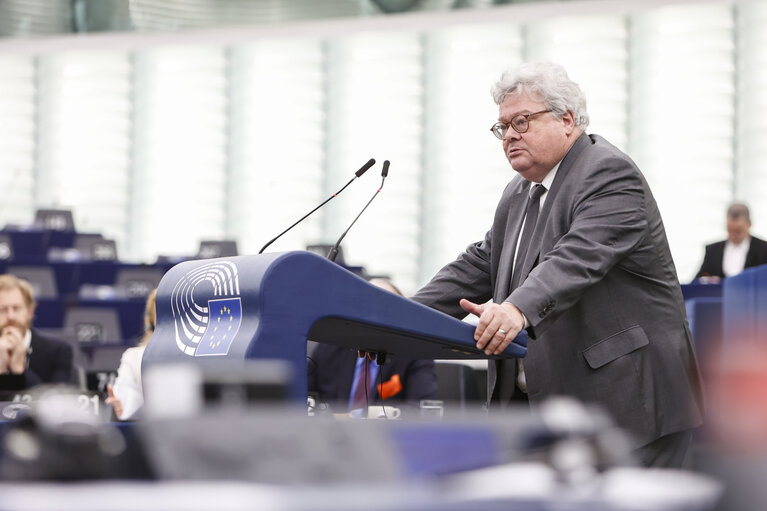Bütikofer, foreign policy coordinator of the Greens/EFA group in the European Parliament, voiced concern about delays in supplying Ukraine.
He said, “The Russian war of aggression against Ukraine marks a fundamental break in the development of Europe since the end of the Cold War. The idea of joint European security together with Russia is a thing of the past. For the foreseeable future there will either be a common European security excluding Russia, or an epoch of insecurity for Europe under the threat of Russia’s revisionist and imperialist policies. It is thus paramount not only for Ukraine, but also for the whole of Europe that Ukraine wins this war with our support.
Russia counts on European solidarity with Ukraine being hampered by hesitation and being finite. A reluctance to provide sufficient support in the form of heavy weapons comes at the cost of ever more death and destruction for Ukraine. Most likely, the war will end at the negotiating table.”
The MEP said, “But the agreements reached there depend on the course and outcome of the military battles. To negotiate at the present point in time would mean for Ukraine to negotiate from a position of weakness.
“Those who delay the necessary arms deliveries risk that Ukraine, despite its courageous efforts, cannot turn the tide in its favour. Russia’s dictator will insist upon Ukrainian surrender until he is forced to accept that he cannot succeed militarily,” he said.
He added, “But the Ukraine war also marks an epoch in overall international relations. For the first time, we Europeans, along with the United States and other partners and allies, appeal to the countries of the Global South to support us in a struggle that is central to our future.”
The German member said, “In doing so, we see that relevant actors, above all China, not only refuse this support, but also seek to exploit the situation in order to weaken the global position of “the West”. In various ways one can observe the emergence of an authoritarian camp with China, Russia, Iran and North Korea as the core.
“We will not be successful in this larger, strategic struggle without consistently developing policies that respect core interests of the countries whose support we seek, and find ways of progressing together. The simple, very fundamental lesson for Europe is: if you want partnership, you have to offer partnership,” he added.
Meanwhile, the Commission has proposed to renew the suspension of import duties, quotas and trade defence measures on Ukrainian exports to the European Union – known as the Autonomous Trade Measures (ATMs) – for another year. This, it says, is a continuation of the EU’s unwavering support for Ukraine’s economy and helps alleviate the difficult situation faced by Ukrainian producers and exporters because of Russia’s “unprovoked and unjustified military aggression.”
An EC spokesman said, “The main objective of the ATMs is to support Ukraine, but the measures are also mindful of EU industry concerns. To this end, and considering a significant increase in imports of some agricultural products from Ukraine to the EU in 2022, the renewed ATMs contain an expedited safeguard mechanism to protect the Union market if necessary.
“The proposal will now be considered by the European Parliament and the Council of the European Union with a view to ensuring seamless transition from the current regime of ATMs to the new one,” he said.
Elsewhere, the Brussels based Friends of Europe think tank says the war has “come to define the geopolitical moment.”
It adds, “In Europe and across the world, it has kickstarted supply chain issues, an energy crisis, soaring inflation, a cost-of-living crisis, a huge migratory upheaval, and that’s just accounting for the non-military impact; the death toll on both sides is in the hundreds of thousands, with an estimated 30,000 Ukrainian civilians dead since the outbreak.”
Image: Photographer: Mathieu CUGNOTCopyright: © European Union 2022 – Source : EP




